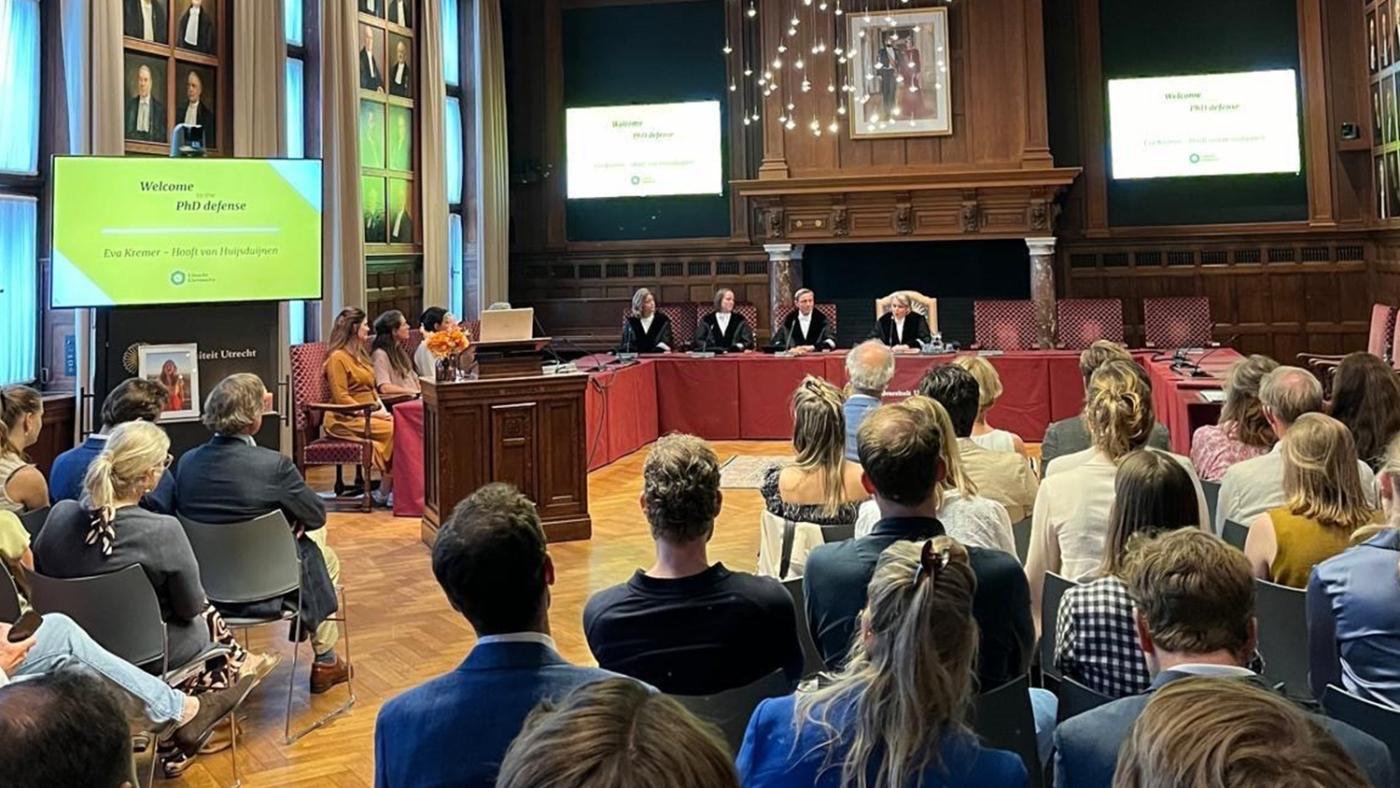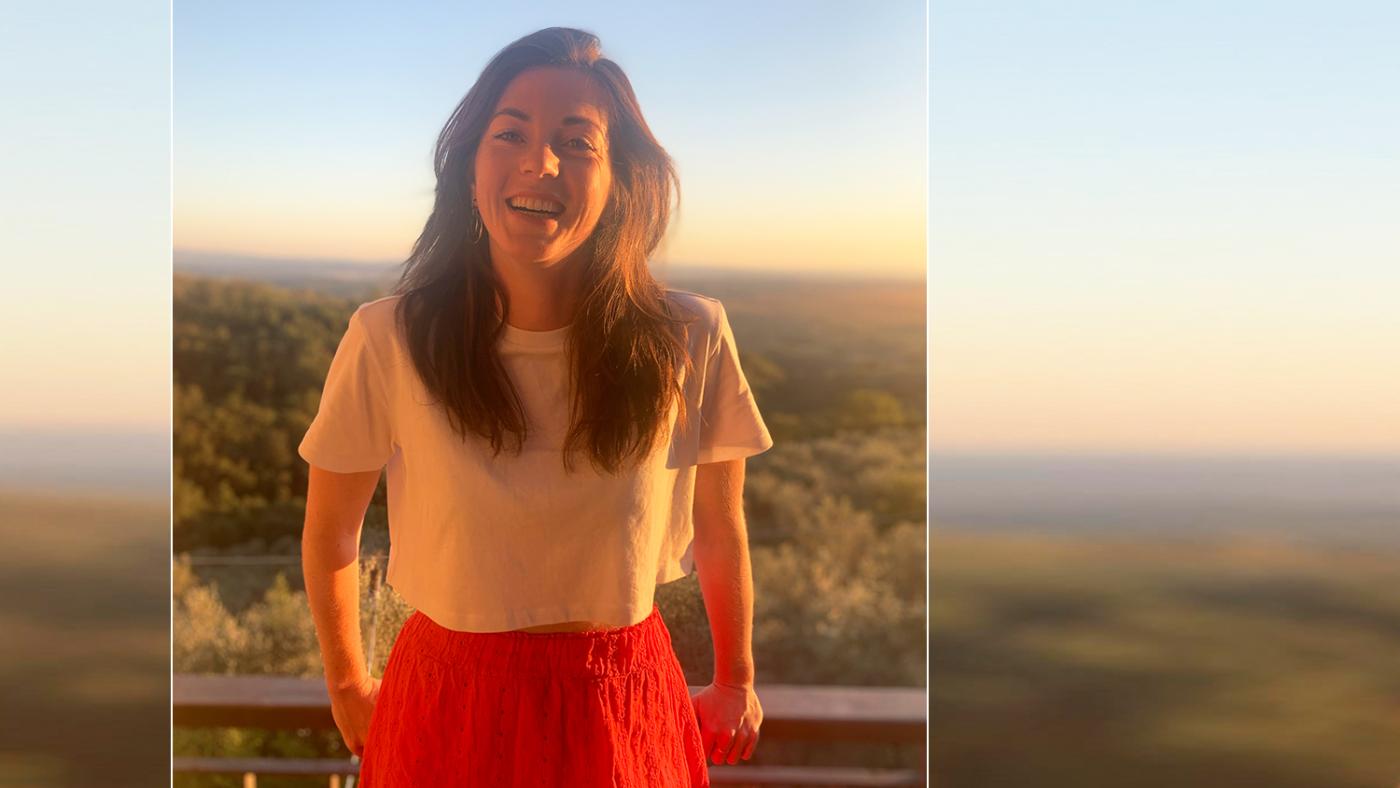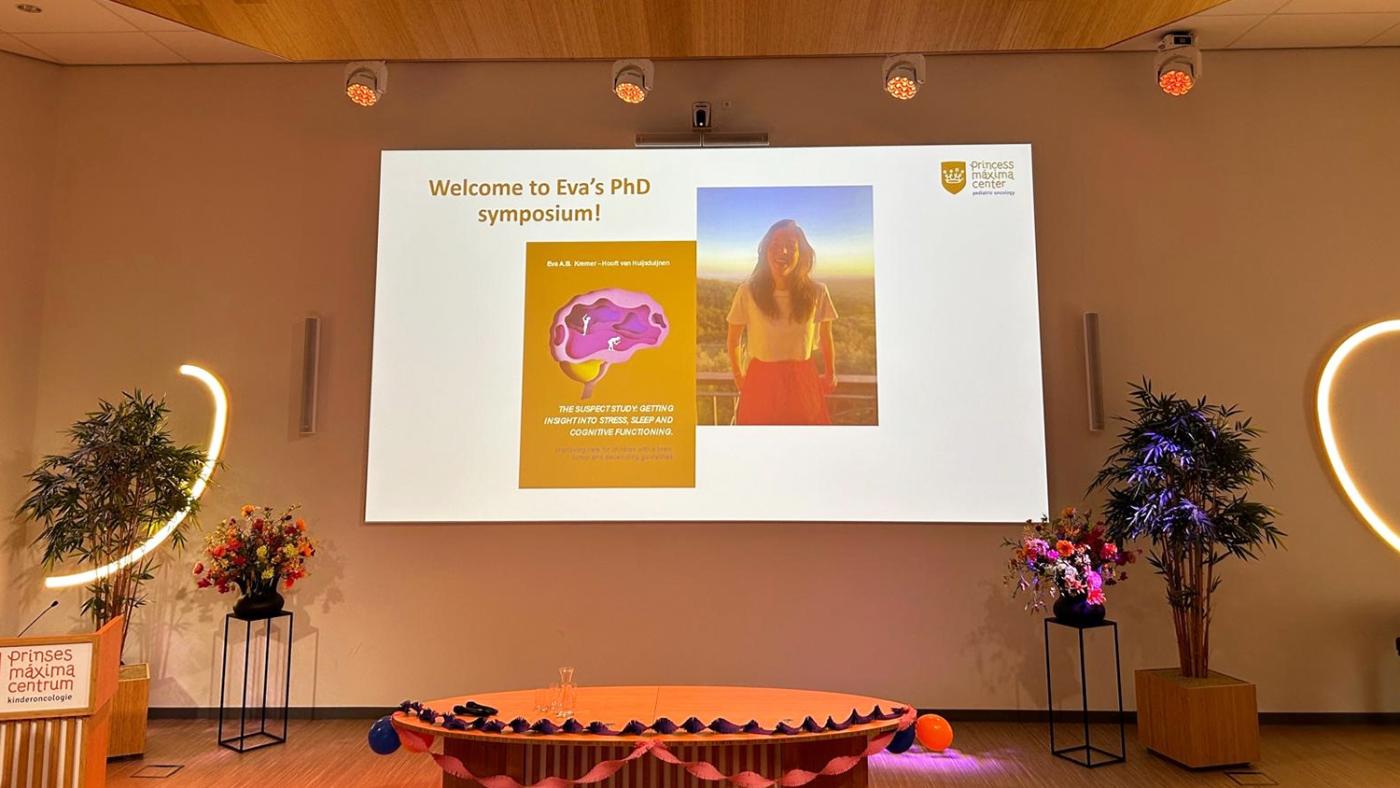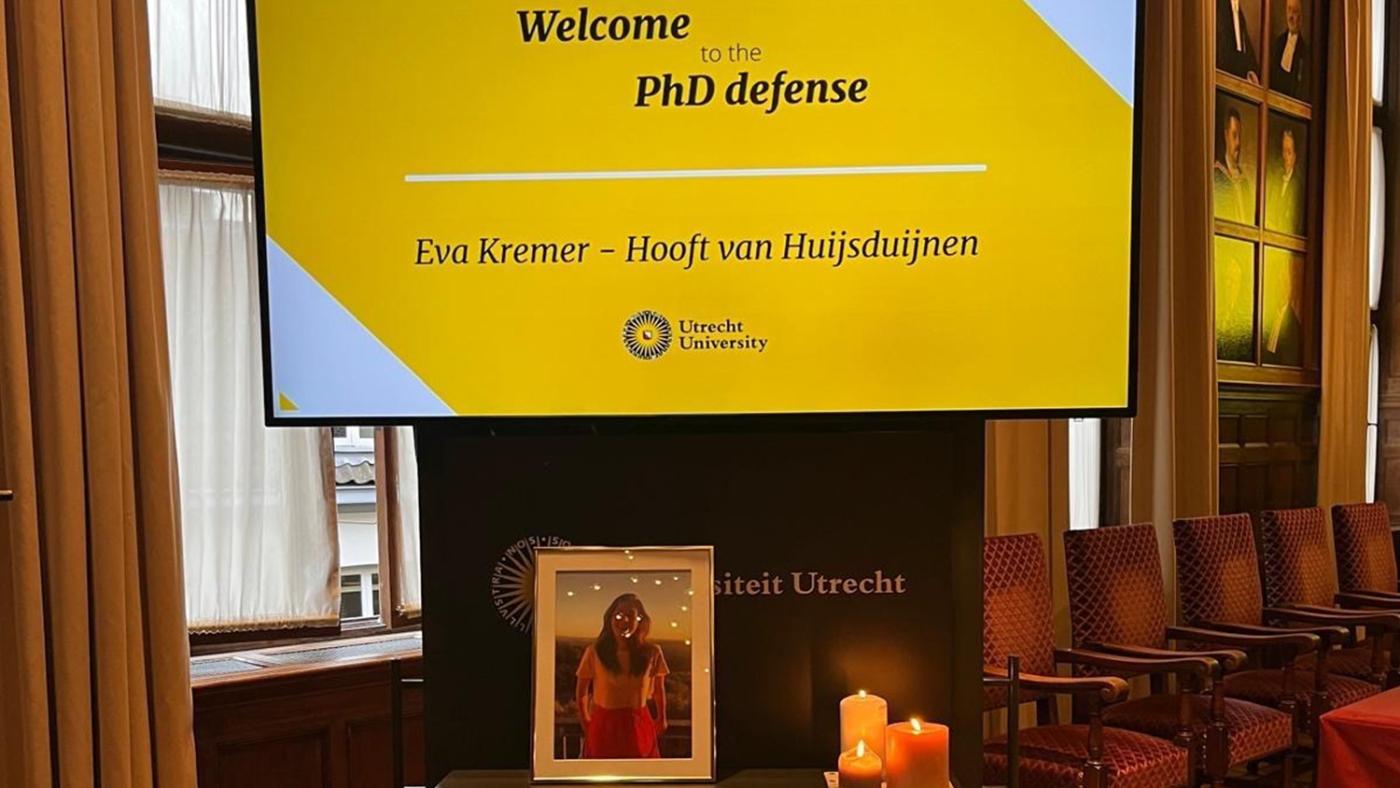'She was proud of her work at Princess Máxima Centre'
Eva was awarded a PhD after dying from the disease she researched

Eva decided to work with oncology or neurology after her father died of a brain tumour at a young age. She was rejected by the Medicine programme three times. After studying Neuroscience and Clinical Neuropsychology, she started her PhD research at the Princess Máxima Centre for Paediatric Oncology, studying children who had just been diagnosed with brain tumours.
Doing this research wasn't easy for Eva, as she started feeling vague fatigue symptoms. She assumed she had Long Covid, but the symptoms got worse and worse. She was diagnosed with cancer in September 2023 and passed away two months later.
Going the extra mile
"Eva was a true go-getter," says her supervisor Martha Grootenhuis, who clicked with her 39th PhD candidate immediately. "She was driven, eager to learn and versatile. She did various things in research and healthcare."
Eva had no previous professional experience with children when she started working at Princess Máxima Centre in 2019. She had to find a research focus, dive into the literature, and network, which required collaborating with a global consortium of experts. Grootenhuis recalls that this work suited Eva very well.
In addition, Eva always walked the extra mile, making work more enjoyable for everyone. For instance, when a new colleague joined her for a conference for the first time, Eva converted her entire hotel room into a party venue.
Eva was working on a protocol for a new study about children with brain tumours. This protocol became the SuSPeCT study, on which Eva eventually obtained her PhD. "She was a control freak in a good way, eager to get everything right," says the supervisor.
"She also had to contact sick children, asking them to participate in the study. She managed to do that by forming a strong bond with the clinic. She soon gathered a whole group thanks to her smile and the confidence she exuded."

Joking around
The parents of the children who participated in the study say they could feel how much Eva liked children. After her death, her husband, Jeroen Kremer, was messaged by several of those parents, who appreciated the way she had interacted with their children. They were amazed at how she managed to put frightened children at ease.
Eva cared for both patients and their parents. She had an eye for detail and sensed what people needed. The parents wrote that Eva often made jokes and let their children be children. She was also described as a flexible, clear and calm person who allowed the parents to be themselves too.
Important research for healthcare professionals
In total, 69 children participated in her comprehensive study. Eva's research was able to confirm something healthcare professionals already suspected: the importance of sleep and stress reduction among children who have just been diagnosed with brain tumours. The study also provided additional evidence for the importance of a multidisciplinary approach.
Eva showed that children with brain tumours tend to have trouble sleeping, as well as stress and cognition problems. However, sleep-related problems are more common in the first phase following the diagnosis. Timely attention and treatment can help prevent these problems at a later stage. The same applies to post-traumatic stress symptoms in both children and parents.
Additionally, the study found that hydrocephalus (excessive cerebrospinal fluid exerting pressure on the brain) is related to sleep, memory and concentration problems. All these problems require interventions soon after the diagnosis.
In addition to Professor Grootenhuis, Eva was supervised by Professor Eelco Hoving and researchers Marita Partanen and Raphaële van Litsenburg.

A psychologist in healthcare
Eva's biggest dream was to work in healthcare alongside her research. This became a reality in 2022 when she started working as a psychologist – an unusual route for PhD candidates in Psychology at Princess Máxima Centre.
That same year, Eva applied for a healthcare training position in Psychology. She finished second, despite her illness and unfinished PhD work. Her symptoms worsened in late 2022, so she quit her healthcare duties to fully focus on her research and health.
After her diagnosis, Eva was admitted to the Antoni van Leeuwenhoek hospital. Even then, she showed how proud she was of her work at Princess Máxima Centre: she kept wearing the orange Princess Máxima jersey to show she was part of the same team. She was proud of having been able to make the world a little lighter for others or offer them a bit of hope at the most terrible time of their lives.
Married
Eva managed to write most of her dissertation on her own. Martha Grootenhuis and other colleagues took care of completion after she received her diagnosis. "Shortly before Eva's death, we felt that we had to shape and compile her thesis. We also worked with all our might to collect words of appreciation from people who had met Eva. Fortunately, we managed to give it to her in time."
Eva kept her sense of humour until the very end. "Oh, so getting a PhD is that easy?" she said. "Jeroen, will you write something on my LinkedIn after I get my PhD? I do want my title there!"
Eva passed away on November 19, 2023, at the age of 30. She married Jeroen shortly before her passing. The couple had been engaged for a year.

Immense sadness
Eva was awarded a PhD posthumously in September 2024. An official university committee gave the green light for it, which was followed by a symposium held on September 4 to a packed auditorium at Princess Máxima Centre.
Colleagues who have written papers with Eva praised her, stressing how important and multifaceted her work had been. "With every photo or e-mail conversation they mentioned, you could just hear Eva laughing," Jeroen recollects.
After the symposium, a smaller group went to the Utrecht University Building for her official PhD defence. It was beautiful, but also incredibly sad. Eva should have been there, but there was only a picture of her.
Eva was applauded for several minutes both after the symposium and the defence. It was the recognition of a promising researcher and inspiring person whom everyone would have liked to see much more of.